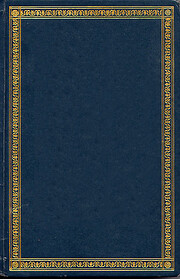

Auf ein Miniaturbild klicken, um zu Google Books zu gelangen.
|
Lädt ... Elements (from "The Mathematical Writings of Euclid, Archimedes, Apollonius of Perga, and Nicomachus of Gerasa") (1985. Auflage)von Euclid
Werk-InformationenDie Elemente. Buch I - XIII von Euclid
 Western Canon (80) » 6 mehr Keine aktuelle Diskussion zu diesem Buch.   ) )Some praise for the Green Lion edition: they carry the diagrams on as long as needed -- that is, if a proof has a diagram, the diagram will appear on every page the proof occupies, saving you having to flip back and forth. Simple and brilliant. It's also printed on nice paper and, overall, is a really swell edition. I suppose it can be argued that Heath's translation is out of date but ... has anyone done a better one? It could be said that all of Western mathematics and science is a footnote to Euclid. This book is the cornerstone of western thought. It is the earliest and most conspicuous work which laid out the foundation, not only for geometry, but for logic itself. This is the book that should be studied in High School geometry, not the vapid, watered-down textbooks in use today. Quite a thorough work. From reading this masterpiece and cornerstone of geometry, one can understand how impressive the original development was as a human achievement. Euclid wrote his Elements around 300 BC. He was one of Plato's younger students, but older than Archimedes. The 13 books of his Elements cover angles, line segments, triangles, rectangles, squares, the irrational numbers, parallelagrams, parallelapipeds, spheres, cones, and polygons. He gives a full treatment of area and never quite defines it. Many of his proofs are much simpler with the tools of algebra and Cartesian space. It's impressive that Euclid reached the same conclusions without the benefit of either. The hundreds of propositions are completely proven, using a handful of definitions that begin each book and the previously proven propositions. Some of these propositions are interesting because there is no strong intuitive basis. Some are uninteresting and never again referenced. Some are fundamental building blocks. And many are "how to" type proofs, ensuring that a given figure can be created under certain circumstances, which again are used in other proofs when auxiliary figures are needed. Among his propositions are the Pythagorean theorem, a number of points regarding equal areas and relationships between areas and volumes, and examples of a variety of techniques. When he uses proof by contradiction, his "absurd" and "which is impossible" are so clear and final that one can understand how the early philosophers latched onto the new mathematics. His use of "absurd" is very reminiscent of a Hobbes' style of argument, as well as, I'm sure, so many others who applied the same approach to political and religious philosophy. Other areas he concentrates on include odd and even numbers, means, squares, ratios, and an assortment of types of "irrationals." The latter are much more detailed than anything I ever studied. Much of his middle chapters seem less applicable to anything other than number theory. Two anecdotes involve his early students. In response to a kingly student's wanting to know if there was an easier way, Euclid responded "There is no royal road to geometry." Another student asked what was the value of this study, to which Euclid replied: "Give him a coin since he must needs make gain by what he learns." keine Rezensionen | Rezension hinzufügen
Gehört zu VerlagsreihenIst enthalten inBeinhaltetHat ein Nachschlage- oder BegleitwerkHat eine Studie überBemerkenswerte Listen
Often called the Father of Geometry, Euclid was a Greek mathematician living during the reign of Ptolemy I around 300 BC. Within his foundational textbook "Elements," Euclid presents the results of earlier mathematicians and includes many of his own theories in a systematic, concise book that utilized meticulous proofs and a brief set of axioms to solidify his deductions. In addition to its easily referenced geometry, "Elements" also includes number theory and other mathematical considerations. For 23 centuries, this work was the primary textbook of mathematics, containing the only possible geometry known by mathematicians until the late 19th century. Today, Euclid's "Elements" is acknowledged as one of the most influential mathematical texts in history. This volume includes all thirteen books of Euclid's "Elements" and is translated by Thomas Heath. Keine Bibliotheksbeschreibungen gefunden. |
Aktuelle DiskussionenKeineBeliebte Umschlagbilder
 Google Books — Lädt ... Google Books — Lädt ...GenresMelvil Decimal System (DDC)516Natural sciences and mathematics Mathematics GeometryKlassifikation der Library of Congress [LCC] (USA)BewertungDurchschnitt: (4.44) (4.44)
Bist das du?Werde ein LibraryThing-Autor. |
||||||||||||||||||||||||||||||||||||||||||||||||||||||||||||||||||||||||||||||||||||||||||||||||||||||||||||||||||||||||||||||||||||||||